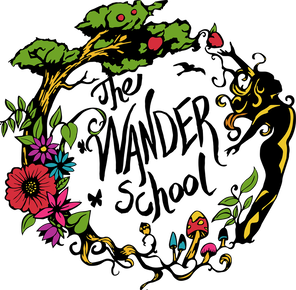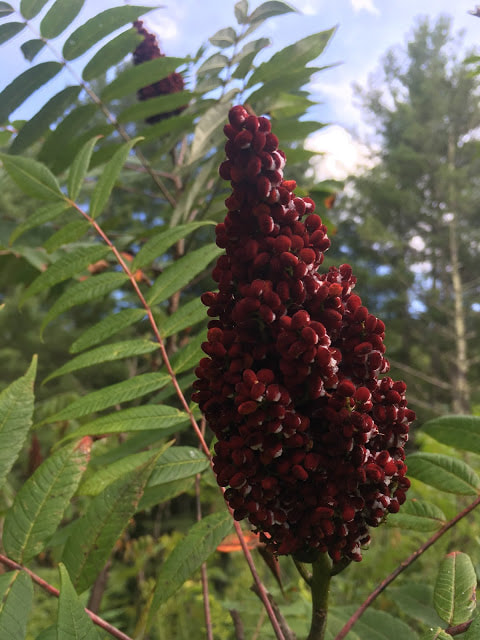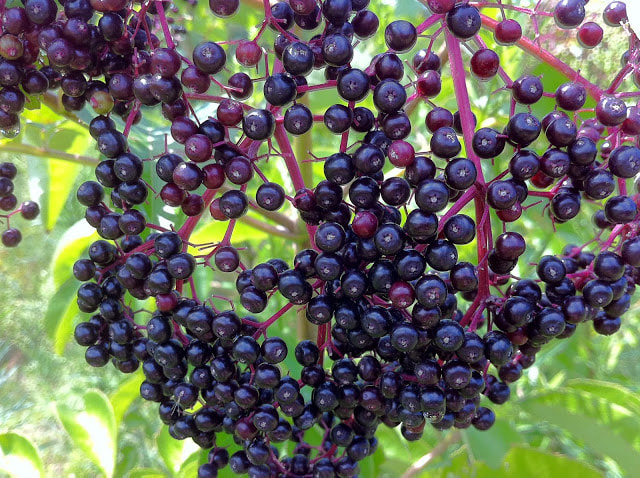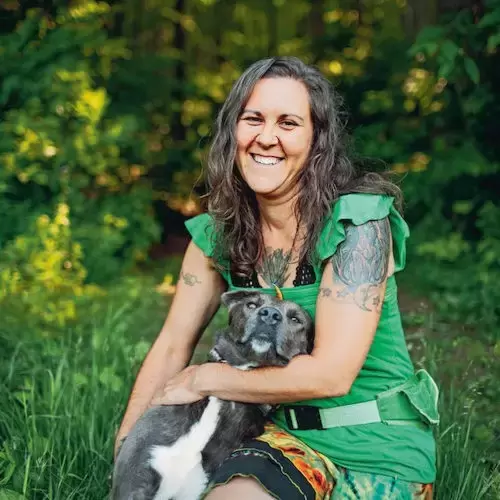|
I started The WANDER School with the mission of inspiring nature connection and health empowerment.
To make trustworthy resources about growing and finding our own food and medicine accessible to everyone, despite background, experience, location, or financial status I offer my wild newsletter, videos, blog and podcasts free of charge so everyone can benefit. As a patron, you’ll be supporting the continuation of my podcast, Wander, Forage & Wildcraft where I interview foragers and wildcrafters around the world to bring you their recipes along with their favorite plants and mushrooms. You’ll also get access to exclusive patron-only content! Will you consider becoming a patron today? Support starts at just 5 bucks a month! www.patreon.com/thewanderschool
1 Comment
I totally <3 sumac! Its brilliant red torches on the side of the road inspire love (though that is not the best place to harvest from). I actually included it in a blog this time last year that focused more on the how-to's of foraging, and identification of the different species. You can find it here: Plant Walk: Elderberries, Sumac, and Wild Grapes.
There are several species of edible sumac, including: smooth (Rhus glabra), staghorn (the really fuzzy ones) (Rhus typhina), and winged (Rhus copallinum). Yes, they are related to poison ivy and poison sumac. The edible sumacs have red berries. The toxic ones have white berries and only grow in very marshy areas. In most places, they're so rare, that I've never actually seen them in person. The edible berries are high in vitamin C. They can be steeped in water in the fridge overnight for a tasty "pink lemonade" drink with a little sweetener added. I like to add sumac to my elderberry syrup for a super high vitamin C tonic. This year I tried a new way to eat sumac berries, one I've been wanting to experiment with for awhile: ground, as part of the za'atar middle eastern spice blend. The word za'atar actually comes from a specific species of Mediterranean oregano used in the blend. Here's a recipe for a traditional style za'atar. I tried something similar to that first, then I got a little wild (nice pun, huh???), and made up my own recipe from foraged ingredients. I'm excited to get to share the finished product with you. If you don't have all the ingredients, just do a little substitution and experimentation of your own (and make sure to share it in the comment section below!). WILD ZA'ATAR RECIPE: 1/8 c ground sumac berries 1/8 c ground bee balm (Monarda didyma, or experiment with other wild Monardas or wild mints) 1/8 c stinging or wood nettle (Urtica dioica or Laportea canadensis) 1/2 TBsp salt of choice, or to taste There's no need to go to all the trouble of scraping the red coating off the berries and discarding the seed. Just make sure the berries are ground very fine, so you don't accidentally chomp down on a hard seed. A coffee grinder works really well for this. After the sumac is ground, you can throw the other herbs in the grinder, and grind them all together. Then, mix in the salt by hand. You can mix a little salt in at a time, and taste it along the way. It's always easier to add than subtract. Personally, my favorite ways to eat za'atar are on top of popcorn, hummus, or toast with avocado. If you need suggestions for what to do with your za'atar, this article has some good ones. Enjoy your wild cooking and let me know how it turns out by leaving a comment below. Have you heard about the mighty elderberry? Don't let their size fool you; they pack a wallop! People are calling them our native goji or acai berry, here in the US.
Elderberry (Sambucus spp) is great for boosting the immune system, and known for helping to fight off flus, colds, and coughs. A compound in elderberries actually binds with the flu virus, preventing it from entering the cell! Elderberries (rich in antioxidants) have also historically been worked with for preventing illness, lowering cholesterol, improving vision, and improving heart health. The elderberry can grow to be a large shrub, up to about ten feet tall. It loves wet soil, where lots of other plants don't like to grow. They're happiest and fruit most prolifically in full sun, but will tolerate partial shade. They also like acidic soil. So, if yours is not acidic, try amending it by pouring your used coffee grounds around the bushes (yay for recycling). The prime time to harvest these berries is late summer, in most places. It's sometimes tough to get them before the birds, so keep an eye on local shrubs. For this reason, sometimes I'll harvest them before they're totally ripe (still semi-reddish), just so I don't lose out. I harvest the whole umbel: that inside out umbrella-looking thing. That saves time over harvesting each individual berry. Pruners are the easiest way to harvest them. You can use a knife, but it's not as easy as pruners, and the more you shake the bush, the more berries that will fall off. If there are still a lot of green berries on the umbel, skip that one, and wait until it's more mature. It's common for berries on the same shrub to mature at different times. That's why it's good to keep track of where you found them on your handy dandy foraging calendar (if you're wildcrafting/foraging them). Below is my simple elderberry syrup recipe which packs a full punch of Vitamin C. Everyone seems to have a slightly different twist on it. Mine is less like juice or maple syrup and more like a strong, sweetened tea. Raw elderberries have small amounts of cyanide in them, so it's not a good idea to eat them raw. Cooking helps deactivate the cyanide. People often like my syrup recipe more than the commercial brands. The decreased amount of honey makes it less sweet and less expensive to make. Try it out and then tweak it to your taste. That’s what being an herbalist is all about! If you're not making syrup right away, you can preserve your berries in a couple of different ways. You can dehydrate them. Just make sure you dehydrate them at a high enough temperature and for long enough, or they will mold. You'll have to play around to figure out what works best in your climate. The other option is freezing. My top secret trick for easy freezing: lay the umbels out, berries down, on a baking sheet, and freeze. Once they're frozen, they're a lot easier to get off the stems. The de-stemmed berries take up a lot less room in the freezer. However, you can also leave them on, if you're making syrup, and throw the whole umbel in. Useful Equipment:
Ingredients:
Directions:
Let me know how you end up making your syrup and what your results are, or if you have other tasty elderberry preservation techniques, below in the comments. Happy concocting! |
Want to help us continue to do this important work |





 RSS Feed
RSS Feed